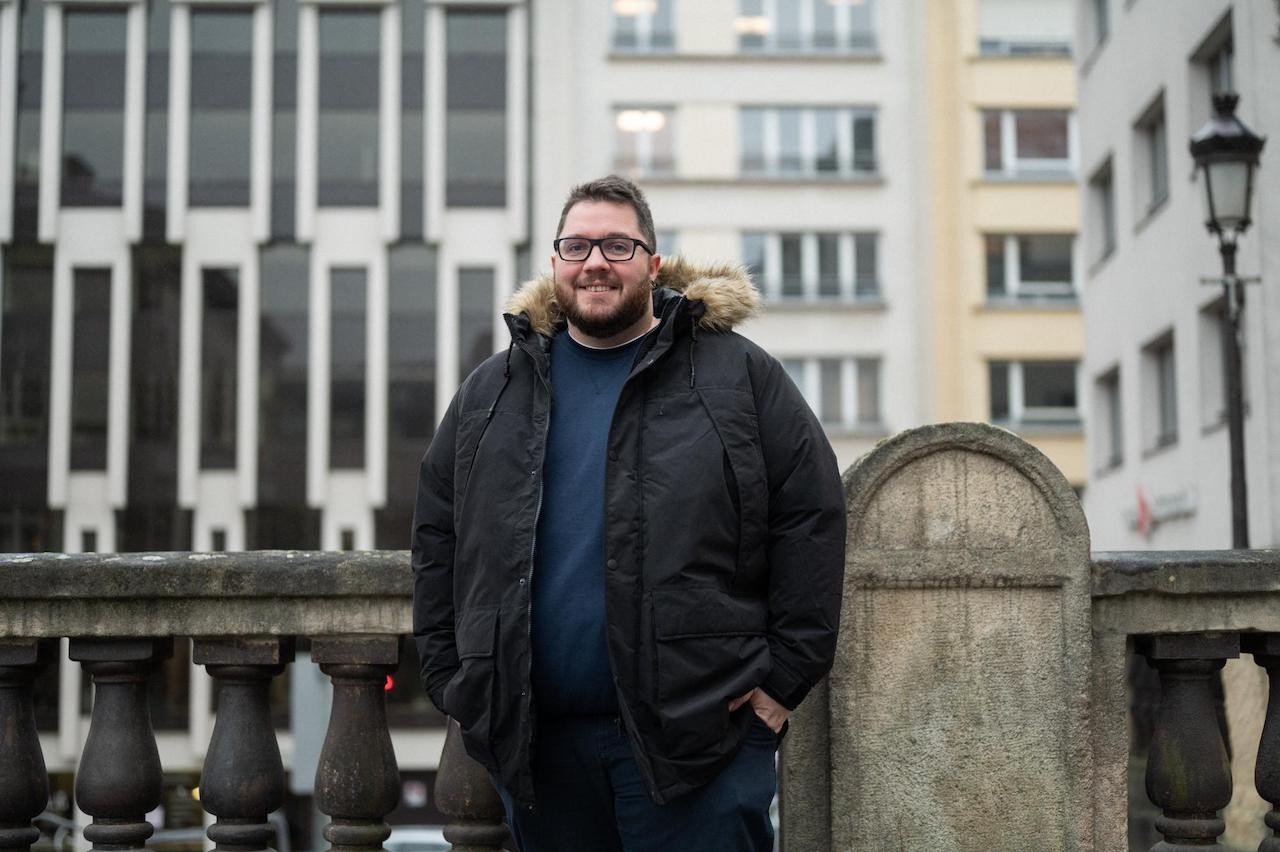The catalogue of criticism surrounding world football federation Fifa ahead of the 2022 World Cup in Qatar is lengthy. As well as its failure to fight for compensation from the host country for migrant workers who suffered terrible conditions while building stadia and infrastructure, the outlawing by Qatar of homosexuality has also seen Fifa come under fire.
Only ten days ago Luxembourg prime minister felt compelled to respond to a statement from former Qatari player Khalid Salman, now a World Cup ambassador, who described homosexuality as "mental damage.” “Football should unite people and not divide them,” Bettel said.
And although Nassar al-Khater, the chief executive of the World Cup in Qatar, tried to assure that fans of any gender, sexual orientation, religion, race would be welcome, he did add that public displays of affection would be frowned upon. “It’s not part of our culture--but that goes across the board to everybody,” al-Khater said.
Andy Maar from Rosa Lëtzebuerg says that while his organisation cannot really judge if it is truly safe for LGBTQ+ to travel to the World Cup, they would not recommend it right now. “Especially because of all those things that you hear, for example in interviews with people saying LGBTQ+ fans should respect the traditions of Qatar.”
Indeed, that was the stance of UK foreign secretary James Cleverly who just three weeks ago urged LGBTQ+ fans to show “a little bit of flex and compromise" and to "respect the culture of your host nation”.
Work on the ground
On the other hand, Maar says that he knows that representatives from the International Lesbian, Gay, Bisexual, Trans and Intersex Association (ILGA) and Amnesty International are on the ground in Qatar. “They are working on awareness campaigns, and also trying to support local initiatives. And they are supporting Fifa in welcoming fans.”
The blame clearly lies with Fifa. First of all, for allowing such a bid. And also for actively supporting Qatar in organising it.
Not that Maar and Rosa Lëtzebuerg are particularly fans of Fifa right now. Like many others, Maar doesn’t think the World Cup should be taking place in Qatar at all. “Not to really blame Qatar at this point,” Maar says. “I mean, of course, there's always a reason to blame those countries that fail to respect human rights. But in this case, the blame clearly lies with Fifa. First of all, for allowing such a bid. And also for actively supporting Qatar in organising it.”
Maar singles out Gianni Infantino for special criticism after the Fifa president wrote a letter to national football associations telling them to avoid being dragged into political conflict. Indeed, the world football federation recently rejected a request from the Danish national team to train in tops that read “human rights for all”.
On the other hand, as Maar points out, the US team had a rainbow-themed logo--with seven coloured stripes replacing the plain red stripes of the team badge--painted in its training facility.
But even that gesture sparked controversy with Daily Wire host Matt Walsh branding the team "treasonous" on Twitter.
And the England team flew out to Qatar on a Virgin Atlantic A350 Airbus that displayed the rainbow Pride flag in a show of support of LGBTQ+ people living in the middle east country. England’s Harry Kane is among eight European team captains who have said they will wear rainbow armbands on the pitch during their matches. “We may all be competing against each other on the pitch but we stand together against all forms of discrimination. This is even more relevant at a time when division is common in society,” Kane was reported as saying.
The counter argument to criticism of Qatar is that under the global media spotlight the country will be forced to be more tolerant. That may be true for the four weeks of the tournament, but Maar is sceptical about the long-term effect.
Previous cases, like Russia in 2018 or China with the Olympics, showed that it doesn't change that much
“I mean, the previous cases, like Russia in 2018 or China with the Olympics, showed that it doesn't change that much.” He has some hope that with the work being done by ILGA and Amnesty International there may be some small change. “But we should keep an eye on Qatar in the next few years to see if those changes remain stable or if we even have some progress.”
Cis normative roles
But as well as human rights concerns and despite the wearing of rainbow armbands or laces, the LGBTQI+ community is still vastly under-represented in professional men’s football. Several women superstars like England’s Beth Mead and USA’s Megan Rapinoe are openly gay, but it was big news when, in May this year, Blackpool's Jake Daniels became the UK's first male professional footballer to come out publicly as gay since Justin Fashanu in 1990.
Germany has a similar problem, says Maar, with just one professional footballer coming out after he had hung up his boots. “There is still a lot to do. It is a very rough sport in which mainly cis heteronormative roles are in place.”
But Germany also has rainbow armbands, which is something Luxembourg can only dream of, says Maar. “In the Luxembourgish Football League, there's no such discussion.”


